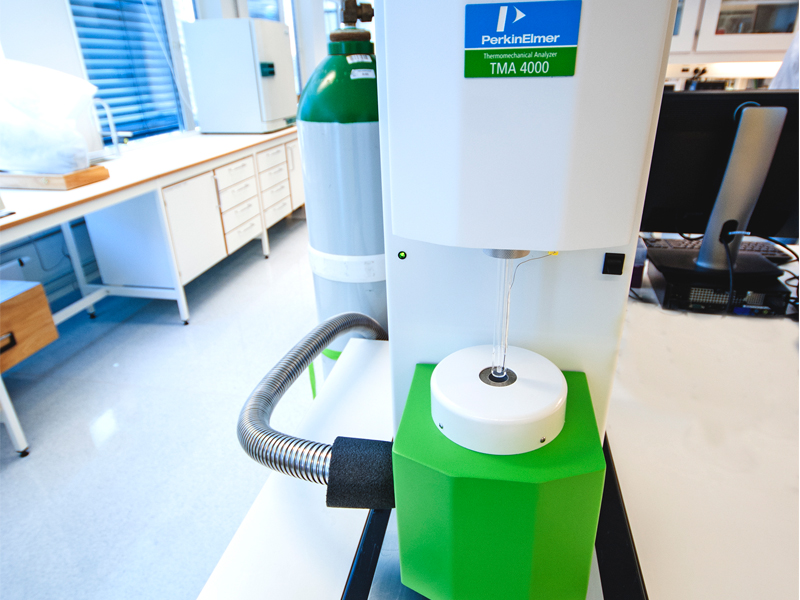TMA offers valuable insight of materials properties

NIOM offers accredited testing of coefficients of linear thermal expansion for dental metals, alloys and crystalline ceramics, and also glass transition temperature for glasscontaining ceramics with a Perkin Elmer TMA 4000.
The technique provides valuable information on materials that is difficult to obtain by other analytical techniques.
In terms of dental materials, thermal properties are of high importance, especially if different materials are to be joined together. Dental crowns or bridges consist of metal alloy or ceramic cores covered with veneering ceramics. These materials undergo changes during heating and cooling.
Thermomechanical analysis, TMA, can provide valuable information on materials which influence on production conditions for dental restorations that is difficult to obtain by other analytical techniques. NIOM offers accredited testing of coefficients of linear thermal expansion for dental metals, alloys and crystalline ceramics, and also glass transition temperature for glass-containing ceramics with a Perkin Elmer TMA 4000. Glass transition is typical for amorphous materials, like glass and polymer materials. Therefore this instrument is also suitable for determining the same parameters for polymer materials.
Thermomechanical analysis provides valuable insight into structural changes or phase transformations. Coefficients of thermal expansion for the core material and the veneering material will always be different and stresses will be built up between the two materials by repeated heating and cooling during veneering.
Metal alloys and crystalline ceramics have almost a linear thermal expansion from low temperatures up to a possible phase transformation or melting point while veneering ceramics consisting of a glass matrix filled with different crystals have a change at a temperature called glass transition temperature (Tg).

Another dental situation where materials are combined and significant stresses may occur is removable prosthesis due to consumption of coffee and ice cream despite the limited temperature variations. Stress developments due to thermal treatments of material combinations have been analysed with TMA by researchers at NIOM and the study has been published (ref).
If you have questions regarding TMA or other methods for material testing, please visit niom.no/materials-testing or contact niom at niom@niom.no
Reference:
Ketil Kvam and Håkon Herø, Stress relaxation in titanium-ceramic beams during veneering, Biomaterials vol 22, Issue 11, 2001: https://www.sciencedirect.com/science/article/pii/S0142961200002933
